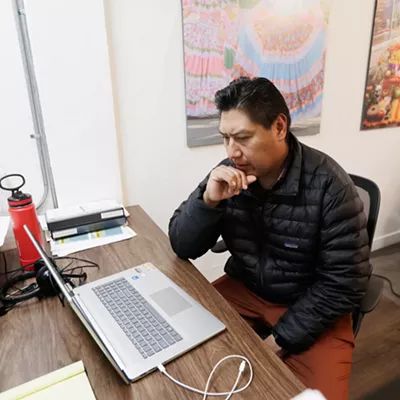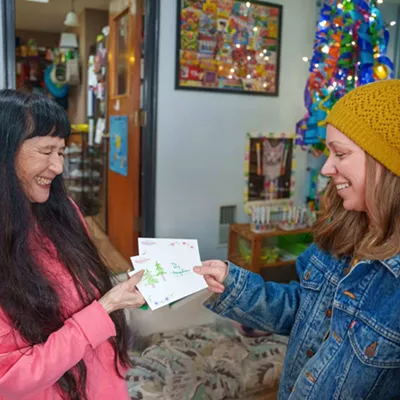
News outlets around the U.S. have been reporting since late January that both documented and undocumented immigrants are being picked up from their places of employment by unidentified federal agents and swiftly deported. Meanwhile, Republican-majority states like Idaho are also passing new laws targeting vulnerable immigrant populations. Some of these rules block undocumented immigrants from accessing public services like food or medical assistance, or enable local law enforcement to help federal agents detain immigrants.
As a result, immigrants increasingly need legal help to remain in the country they've come to seeking better opportunities, making it critical to train more attorneys in complex immigration law. Here in the Inland Northwest, immigration law clinicis at Gonzaga University and the University of Idaho help international, documented and undocumented students as well as the area's broader immigrant population navigate the legal system, while training the next generation of immigration attorneys.
GONZAGA UNIVERSITY
Professor Kristina Campbell, director of Gonzaga's Beatriz and Ed Schweitzer Border Justice Initiative, is training law students to advocate for immigrants by navigating complicated paperwork and taking on challenging legal cases to block deportation.
The initiative has two immigration clinics, one focused on broad immigration advocacy work and one focused on immigrant youth. Both help students studying immigration law get real-world experience.
"We have been having asylum clinics in partnership with Latinos En Spokane, where people who needed assistance, who were close to their one-year deadline for filing for asylum, and had been prescreened by Latinos En Spokane," Campbell says. "Our law school students helped fill them out and file their asylum applications before they hit their one-year deadline."
Campbell says other local organizations like Manzanita House also refer more complicated cases to the clinic, which she then evaluates as potential cases for students to work on under her supervision.
"We're primarily an educational institute in law school, and so we have to pick cases that are not just good cases for everybody's needs," she says. "We look for cases that have good teaching value ... the type of things that could help our students really hone their skills as advocates."
Since the immigration clinics at Gonzaga are fully funded by endowments, the clinic provides its services free of charge.
Campbell says the best way concerned community members can help immigrant populations is to support organizations like Latinos En Spokane and Manzanita House. Both frequently host programs that explain immigrant rights or help with other legal services.
Manzanita House spokesperson Kelly Johnson says people can engage with the nonprofit on social media or make monetary donations.
"Financial support helps us to continue to welcome and serve immigrants and refugees in the Inland Northwest," Johnson says. "Particularly in this moment, as our $152,000 in funding to provide affordable legal services to unaccompanied children was terminated, devastatingly impacting our staff and the children that we serve."
UNIVERSITY OF IDAHO
As director of University of Idaho's Immigration Litigation and Appellate Clinic, Geoffrey Heeren is proud of the program's work successfully representing clients in asylum cases, special immigrant juvenile status and appellate cases. The clinic advises over 100 college students on immigration issues and provides community presentations on immigrant rights. On average, over two dozen students contribute to interviewing clients, conducting legal research, drafting documents and arguing cases in appellate courts.
Heeren says the demand for this kind of legal assistance has increased, and heightened enforcement has made it challenging for him and his students to serve the immigrant community.
"Some of the kids that we represent, ICE is now changing its enforcement practices in ways that are very stressful for our clients, and we need to adapt to these changes for our current population of clients," Heeren says. "There are a lot of people seeking our services, far more cases than we can ever take."
To ensure law students continue to be prepared to enter the field of immigration law, Heeren says the clinic relies on monetary donations via the University of Idaho Foundation. But another significant need is translators.
"We are looking for volunteers to serve as interpreters or translators, particularly for tougher languages," Heeren says. "We have a lot of folks who can handle Spanish, but sometimes we need interpreters for Haitian Creole, Dari or Pashto."
He also hopes more people consider law school to meet the increased demand for legal professionals who can defend and fight for the rights of vulnerable populations.
"I think that there's no better way to uphold the rule of law in our country than for lawyers and law students to stand up for it," Heeren says. "Immigrant rights are our civil rights in our country, and it's important to defend those." ♦

























